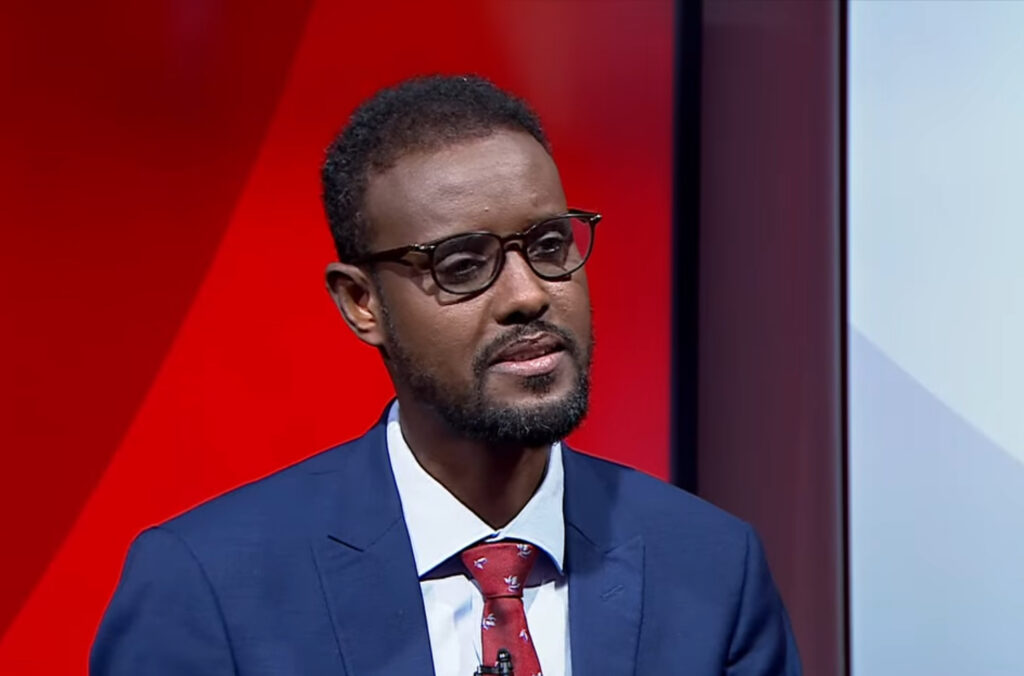For decades, the BBC Somali Service stood as the gold standard of Somali journalism. From Mogadishu to Minneapolis, Hargeisa to Helsinki, if the BBC Somali carried a story, it mattered.
Trusted. Respected. Unbeatable. But in 2025, the mighty house of Bush House is collapsing in Nairobi, and at the centre of its downfall is one man: Muhyadin Ahmed Roble, the now-demoted editor whose reign of ego, arrogance, and controversy has left the once-mighty broadcaster battered, broken, and bleeding credibility. This is not just an office reshuffle. This is individual ego turned into institutional crisis.
Roble walked into the BBC Somali newsroom in March 2020 like a conquering general. He boasted of a glittering résumé, a “Master’s degree in International Relations” and years of media experience. But behind the puffed-up CV was a fragile ego, and a management style that staff describe as dictatorship on steroids. “He ran the place like a warlord, not an editor,” one former journalist said. “Harassment, intimidation, micromanagement, that was daily life.”
The result? An exodus. Over the past two years, nearly 20 journalists walked out of the BBC Somali Service. These weren’t interns or trainees. They were respected names, seasoned reporters, the very backbone of the brand. Some left quietly, others loudly. But the message was the same: under Roble, the BBC Somali had become toxic.
One female staff member even alleged sexual harassment, but never reported it formally. Why? She believed senior managers were shielding Roble, waving away complaints as “jealousy” or “clan politics.”
By 2023, the complaints had piled up so high in the Nairobi office that London could no longer look the other way. Over 40 staff grievances, a record for any BBC Africa language service landed on the desks of HR and management.
London sent in a new overseer to manage the Nairobi newsroom. But the damage was already deep. The once-invincible BBC Somali was now mocked as a sinking ship, staffed by demoralised journalists and led by an editor who had lost the trust of both his team, news sources and his audience.
And then came the hammer blow: early September, Roble was officially removed as editor and reassigned to a minor role with BBC Newsday. A demotion dressed up as redeployment. But inside the Nairobi newsroom, when the announcement was made, there were no tears. No sympathy. No solidarity. “There was celebration,” a staffer told Somali Stream. “It was like Eid. The dictator was gone.” If Roble thought his troubles ended there, he was wrong. His controversies spill far beyond the newsroom. In 2024, Roble made headlines for all the wrong reasons, not in Somali newsrooms, but in Nairobi’s police blotters.
Kenya’s Anti-Terror Police Unit stormed the BBC Nairobi office and dragged him out in handcuffs, accused of forging documents. The images went viral across Somali WhatsApp groups, the BBC Somali editor shackled like a petty fraudster. In court earlier this year, he pleaded not guilty, but the case is ongoing. For an editor whose job was to guard credibility, the stain of a criminal case is catastrophic.
Perhaps the most humiliating blow came not from within the BBC, but from Somalia’s seat of power. Senior officials in Villa Somalia told Somali Stream that they had agreed to grant interviews to BBC World and BBC Somali Service only if Roble had no involvement whatsoever.
“His credibility is gone,” one official bluntly said. Imagine that: the Somali presidency, once desperate for BBC Somali’s platform, now treating its editor as a liability, a threat to credibility.
From Dream Job to Dead Brand Under Roble, BBC Somali didn’t just lose staff. It lost its soul.
Ratings plummeted so low that even Kenya’s state-run Iftin FM overtook it. Once upon a time, every young Somali journalist dreamed of joining the BBC. Today, most look elsewhere, to digital platforms, to YouTube, to independent outlets. And the defections have birthed competition. Former BBC stars now run their own operations, snapping up exclusives, scoops, and loyal audiences. The BBC, meanwhile, is left trailing, its credibility gutted, its talent gone, its once unshakable authority shattered. Inside the BBC corridors, there is now hushed talk of Roble’s appointment as one of the worst HR mistakes in the broadcaster’s African history. How, they ask, did a freelancer from Radio Ergo, armed with little more than self-promotion and suspect academic papers, end up leading an over 60-year-old institution? “BBC was duped,” a former staff member said bluntly. “They thought they were hiring a visionary. What they got was a disaster.”
In the digital era, where Somali audiences consume news on TikTok, Facebook, and Telegram, credibility is everything. But under Roble, the BBC Somali isolated itself from government sources, NGOs, and the very audiences it needed. Why? Insiders say it was all about his ego. One former reporter summed it up bitterly: “BBC News Somali’s reputation was built by giants, trusted journalists who understood Somalia and its people. And it was destroyed by one man who thought he was bigger than the institution.”
Today, Muhyadin Roble sits in Nairobi, stripped of his editor title, downgraded to a producer’s desk at Newsday. For someone who once strutted the corridors of BBC Somali as if he owned them, the fall is complete. From king to pawn. From feared dictator to newsroom gossip. And the damage? Irreversible. The BBC Somali Service may never reclaim its glory. The audience is gone. The talent is gone. The credibility is gone. In the end, the lesson is simple: Ego kills. And in the case of BBC Somali, ego may have killed an institution.


